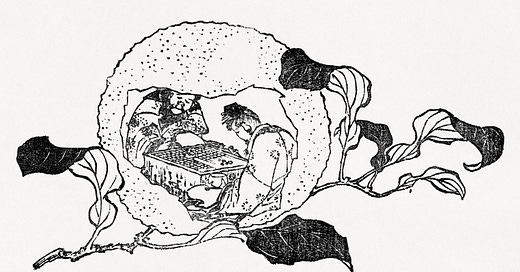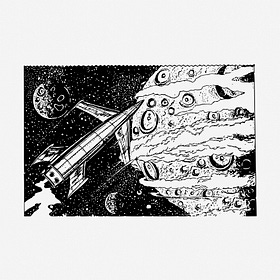Why have we settled for in-optimal governance?
Some thoughts on different flavors of government, Part 1
I.
Today, the world has many governments, but they mostly follow a very small number of basic governance templates. Democracy in a few flavors, socialism in a few more, and not much else. In particular, we have an obsession with Democracy as the political ideology that shapes our discourse. Wikipedia even goes as far as breaking down forms of government into ‘democracy,’ ‘not democracy,’ and ‘other.’
I don’t have any particular problem with democracy per se, but I do think the typical knee-jerk reaction against any suggestion of alternatives to democracy is problematic. There are very few topics that provoke crusading the way criticizing democracy can. Usually the knee-jerkers will preach the historical failures of systems like totalitarianism, monarchism, or communism to justify democratic fervor. This religiousness stems from the fact that democratic capitalism is, at its core, a social ideology. Yes, sure, it’s our dominant social ideology —unless you happen to live in a place where it’s communism rather than democracy that dominates political discourse, but even then the same argumentative principles apply— but just because someone else votes to jump off a bridge doesn’t mean you should too.
Sapiens highlights the particular human failure mode nicely:
Any large-scale human cooperation – whether a modern state, a medieval church, an ancient city or an archaic tribe – is rooted in common myths that exist only in people’s collective imagination. Churches are rooted in common religious myths… States are rooted in common national myths… Judicial systems are rooted in common legal myths… Yet none of these things exists outside the stories that people invent and tell one another. There are no gods in the universe, no nations, no money, no human rights, no laws, and no justice outside the common imagination of human beings.
While these shared narratives have proven powerful and useful, they shouldn't keep us from entertaining new ones. In fact, it's imperative that we consider new ones.
We do not examine our governments critically the way the originators of our government did, meaning we may have a nonoptimal system that's only compounding over time. On Substack, there's been a recent uplift in stories and discussions around better futures. Writers like
and the other neo-utopianists engage in a vigorous hope-punk discourse, bucking the in-vogue doom-and-gloom for something much more optimistic. Besides simply writing more of these types of stories, I see a need for more specific. The self-actualizing philosophy we’re aiming for is doing a good job of imagining worlds where we have shining solar-powered cityscapes, etc., and that's better than the maudlin, ad nauseam dystopia that has dominated today’s popular storytelling, but without the specific ‘how’ we're missing something vital.We need to examine three things closely here: governance, contingency, and value lock-in. Hypothesizing on better forms of governance, considering the very long-term implications of not working on these better futures (i.e. better futures are very contingent on us figuring out better governance now), and the cost/opportunity of locking these values in now. It's like the saying about the tree and when to plant it. Radical change in government seems far-fetched in our modern world, but it seemed equally far-fetched to those living in the 18th century. Put another way, imagining better forms of governance now gives us a small chance of a huge future win.
To use a recent example (in government-creation terms), the Founding Fathers of the United States, deeply inspired by the Enlightenment, drew extensively from its luminaries to form the foundational principles of American democracy.
John Locke’s ideas about natural rights and government directly influenced the Declaration of Independence and the Constitution, advocating for life, liberty, and property as fundamental human rights. Baron de Montesquieu's "The Spirit of the Laws" introduced the separation of powers to prevent any branch from overpowering the others. And Jean-Jacques Rousseau's ideas on direct democracy and the social contract underscored governance's legitimacy from the people's consent.
Then there are James Harrington's and Sir Edward Coke's discussions on property, political power, and English common law. Voltaire and Cesare Beccaria’s stances on justice and religious freedom. The political ideologies of the English Whigs. The classical philosophies of ancient Greece and Rome. The list goes on.
II.
We modern humans benefit from access to all of these great thinkers -- but also suffer from a lack of popular, modern intellectual thought on government. Think about it for a minute. Even if you happen to be a hardline critic of our current democratic government, discarding the entirety of the Western political philosophy canon, what are you left with? Burke, Marx, de Tocqueville, Nietzsche, and Spengler are all men long dead. Alasdair MacIntyre, a moral philosopher critical of modern liberal democracy, is the only living thinker I can conjure, and he's not exactly topping the NY Times bestsellers list. Some of you might point to Peterson, but criticizing identity politics isn't exactly on the same level as imagining new forms of government. Kim Stanley Robinson’s Ministry for the Future is another example, but there isn’t much innovation there, just a story about re-combining the building blocks we already have. We need to tell better stories for better futures.
Better stories, better futures
"The future cannot be predicted, but futures can be invented" - Dennis Gabor, “Inventing the Future”, 1963Thanks for reading The Protopian! Subscribe for free to receive new posts and support my work. Once upon a time, humanity didn't believe the future could be changed.
From my perspective, we're stuck in a philosophical rut, and the stakes to get it right going into the future are high.
In this theme, I'm interested in ideal governance: what kind of governance system should you set up if you're starting from scratch and can do it however you want? If the founding fathers of the United States were drafting their government from scratch in the modern world, what would it look like?
'Government' here could apply to a company, a nonprofit, an informal association, or a country. And "governance system" means a Constitution, charter, and/or bylaws answering questions like: "Who has the authority to make decisions (Congress, board of directors, etc.), how are they selected, and what rules do they have to follow, and what's the process for changing those rules?"
But specifically, I'm interested in how this could be applied to huge companies and countries, as the two are looking more and more alike by the day:
III.
This is a very different topic from something like "How does the US's Presidential system compare to the Parliamentary systems common in Europe?" The idea is not to look at today’s most common systems but to generate options for setting up systems that are radically different from what's common today.
The problem doesn't lie solely with the United States. All contemporary governments rely on a restricted array of models, often to the disadvantage of their citizens. Singapore demonstrates a model where strict government control exists alongside a thriving market economy, but authoritarianism is as old as time. The Scandinavian countries have added a bit of socialist spice to their capitalist democracies, but the ingredients are same-old same-old.
We may have a non-optimal system that's only compounding over time. We have entrenched government templates that may block highly contingent societal betterment. Systems of government seem to be something with very high lock-in. The last few times a radical shift in humanity's templates for government took place were during the birth of the United States and the communist revolutions of Russia/China.
We're not going to find new continents on Earth to use for experimentation, and it's in our best interest to try to avoid any political upheaval that necessitates the deaths of tens of millions. But we are at the precipice of living in meaningful numbers in space and on other planets. Why should democracy be the default for Martian settlements? Why should we settle for communism aboard our century ships to Alpha Centauri?
Why should any future human civilization be beholden to our crusty, Earthbound ideology?
In the next post, I’ll explore the concepts of superforecasting, sortition, and some interesting ideas for enhancements to democracy that follow.







Just read this and I could not be more on board. We do need models for future governance beyond what we’ve already come up with. I have some ideas but they’ve been hard to flesh out. But your writing is inspiring me to get to it. Thank you!
(PS, can I include this in my next print edition?)
i've found some great links to examples of projects currently pursuing innovations in governance at https://www.co-intelligence.institute/blog-parts-wholes, e.g. in its 'Part 2' post 5/15. wishing well in your work!